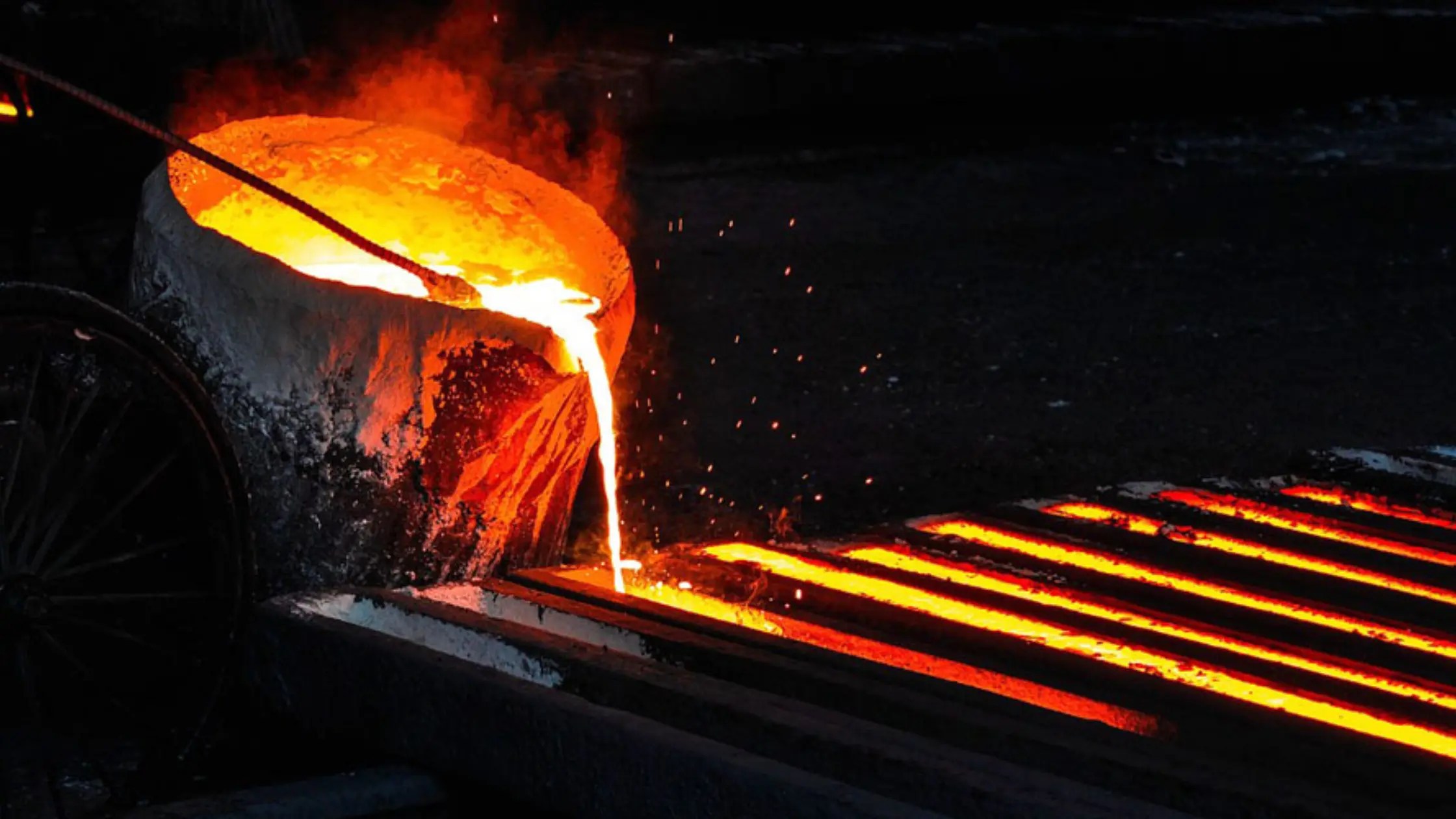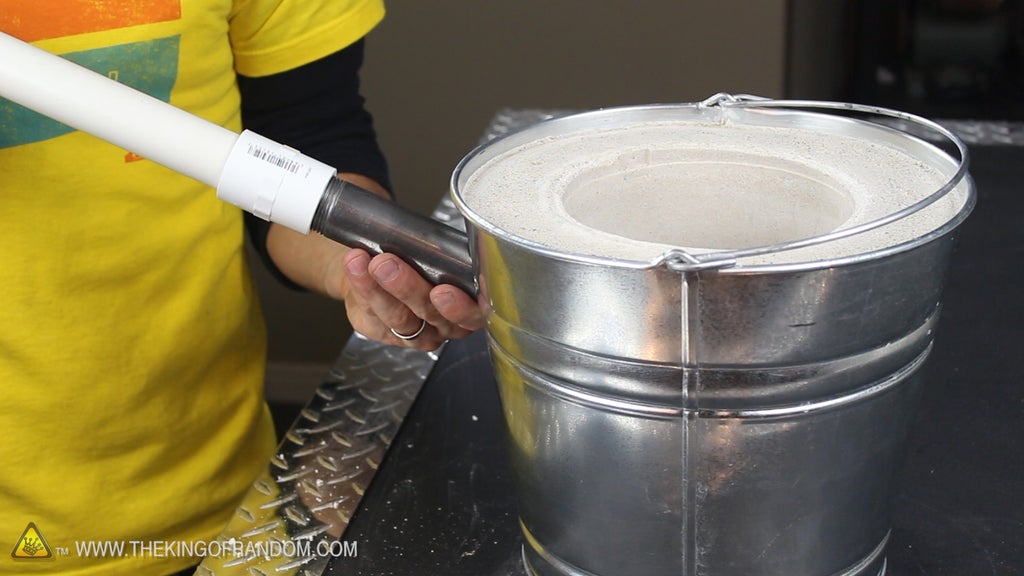Understanding the Aluminum Casting Process: A Modern Perspective
Wiki Article
A Comprehensive Guide to Metal Casting: Advantages and Services Supplied by Foundries
Metal casting is a vital procedure in various sectors, supplying various advantages with the solutions of factories. These facilities transform liquified metal into specific and sturdy parts, dealing with particular customer demands. By employing sophisticated technologies, foundries guarantee quality and effectiveness in production. Nonetheless, the intricacies of metal casting and the varied techniques involved increase vital inquiries concerning its role in contemporary production. What technologies lie in advance in this necessary field?Understanding the Metal Casting Process
The metal casting process is an essential technique used in producing to create complicated shapes and elements. This method involves putting molten metal into a mold made to create the wanted things. The process begins with pattern creation, which serves as a layout for the mold and mildew. Metal Casting. Numerous materials, such as sand, metal, or ceramic, are made use of for mold-making, depending upon the particular needs of the casting
When the mold is prepared, liquified metal is poured into it and permitted to cool down and strengthen. After solidification, the mold is removed, disclosing the cast part. Different techniques, including sand casting, financial investment casting, and die casting, are employed, each fit to various applications and materials. Quality assurance measures, such as examinations and screening, are vital to assure the final item satisfies requirements. Overall, the metal casting process plays a vital role in generating components for industries ranging from auto to aerospace.
Key Conveniences of Metal Casting
Metal casting supplies significant advantages that make it a preferred manufacturing approach in numerous sectors. Its design flexibility and accuracy enable detailed shapes, while cost-efficient automation boosts performance. In addition, the adaptability and toughness of materials utilized in casting contribute to the longevity of the last products.Layout Adaptability and Precision
Launching exceptional design versatility and accuracy, metal casting enables developers and engineers to produce elaborate forms and functions that would be difficult or difficult to attain with other making techniques. This capacity makes it possible for the production of intricate geometries, internal frameworks, and great information that boost item performance and looks. Additionally, different casting techniques, such as sand casting, investment casting, and pass away casting, supply more options for modification, accommodating diverse material properties and task requirements. The versatility of mold and mildews permits alterations throughout the design phase, enhancing the change from principle to last product. Ultimately, metal casting stands out for its capability to provide high-precision components, making it an indispensable process in markets ranging from vehicle to aerospace and past.Affordable Mass Manufacturing
Cost-effective automation stands as one of the main advantages of metal casting, allowing manufacturers to generate big quantities of components at a reduced cost each. This efficiency emerges from the capacity to create complex molds that can be reused numerous times, considerably minimizing arrangement and operational expenses. Additionally, metal casting processes, such as sand casting and die casting, permit high throughput, making it possible to fulfill the demands of large manufacturing runs. The minimized material waste and energy intake better improve cost savings, making metal casting an appealing alternative for markets needing mass parts. On the whole, the cost-effective nature of metal casting placements it as a recommended technique for producers going for financial performance in their production processes.Product Versatility and Strength
Among the standout attributes of metal casting is its impressive product flexibility, which permits for making use of a wide variety of metals and alloys. This adaptability makes it possible for suppliers to choose products that ideal match their particular applications, from light weight aluminum and bronze to iron and steel. Each metal offers one-of-a-kind buildings, including varying degrees of stamina, corrosion resistance, and thermal conductivity. Metal casting can generate parts that meet strict efficiency requirements across diverse sectors, such as auto, aerospace, and building and construction. Additionally, the toughness of cast metals can be boosted through different treatment processes, making certain toughness and long life. Aluminum Foundry. Overall, the mix of product convenience and intrinsic toughness makes metal casting a favored choice for producing top quality componentsTypes of Metal Casting Techniques
Metal casting incorporates a range of strategies that satisfy various production needs and product properties. Usual approaches include sand casting, which uses a sand mold and mildew for complex forms, and investment casting, understood for its accuracy and surface finish. Die casting is one more technique that employs high-pressure shot of liquified metal right into molds, perfect for automation of small components.Shell molding provides a faster alternate, using a resin-coated sand to create thin-walled mold and mildews, while shed foam casting permits detailed styles without the demand for a core.
Furthermore, continuous casting is made use of for producing lengthy sections of metal, such as sheets or bars, by solidifying liquified metal in a constant procedure. Each strategy provides distinct benefits and is picked based upon variables like the required detail, manufacturing quantity, and product kind, making sure remarkable end results in metal construction throughout different markets.
The Role of Foundries in Metal Casting
Foundries play a critical function in the metal casting procedure, working as the facilities where liquified metal is changed right into ended up products. These specialized facilities are outfitted with the essential tools and innovations to deal with different metals, making sure high-grade end results. Shops are accountable for a number of critical features, consisting of melting the metal, putting it into molds, and permitting it to solidify.Furthermore, they keep stringent safety and security and ecological criteria to safeguard employees and reduce environmental impact. Skilled service technicians and designers collaborate to maximize casting procedures, enhancing efficiency and decreasing waste. Shops likewise participate in quality assurance measures, guaranteeing that the final items satisfy details tolerances and specs. This quality control is important for industries that rely upon specific elements, such as auto and aerospace. Because of this, factories add considerably to the overall production landscape, enabling innovation and development across different markets.
Custom-made Metal Casting Solutions
Custom metal casting solutions supply customized layout services that fulfill specific client needs. These services likewise offer product selection expertise, ensuring the ideal metal is picked for the desired application. Such adaptability and knowledge improve the total quality and performance of the last product.
Customized Layout Solutions
Tailored layout services in metal casting provide makers with the adaptability to develop elements that meet particular efficiency and aesthetic needs. Factories provide tailored solutions that enable customers to define measurements, forms, and surface area coatings to achieve preferred outcomes. This customization process usually consists of cooperation between designers and engineers, making sure that the end products line up with operational requirements and sector standards. Advanced modern technologies, such as computer-aided layout (CAD) and simulation software application, allow specific modeling and screening of elements before production, reducing errors and enhancing effectiveness. By leveraging customized layout services, companies can optimize functionality while lowering waste and costs, inevitably bring about a more one-upmanship out there. This adaptability is essential for markets requiring distinct applications and requirements.Material Option Know-how
When choosing products for metal casting, proficiency plays an important function in making sure that the ideal choice straightens with both performance requirements and cost-effectiveness. Foundries employ knowledgeable experts who comprehend the residential or commercial properties of numerous steels and alloys, enabling them to recommend excellent materials for particular applications. Factors such as stamina, deterioration resistance, and thermal conductivity are very carefully considered to meet the client's requirements. Furthermore, industry patterns and improvements in material science inform these choices, allowing shops to stay affordable. By leveraging their expertise, foundries can assist customers in guiding with complicated product choices, ultimately resulting in enhanced product quality and decreased production costs. This customized knowledge is important for accomplishing successful results in custom-made metal casting services.Quality Control in Metal Casting
Quality control in metal casting is important to assure that the end products fulfill the needed requirements and efficiency requirements. Shops utilize a range of strategies and approaches to assure the best of actors parts. This process begins with stringent product examinations, validating that raw materials abide with sector requirements. Throughout the casting process, real-time tracking visit their website and testing are conducted to examine specifications such as temperature level, mold honesty, and dimensional precision.
Applications of Metal Castings Across Industries
Metal spreadings play a vital duty in different industries, acting as the backbone for plenty of applications. In the vehicle market, cast components such as engine blocks and transmission housings are essential for automobile efficiency and reliability. The aerospace market relies upon precision castings for crucial parts that guarantee safety and effectiveness in trip. Furthermore, the building and construction industry utilizes metal spreadings for components, fittings, and architectural elements, improving the resilience of structures and framework.The power field advantages from spreadings made use of in turbine blades and various other tools vital for power generation. The medical area likewise uses metal spreadings in tools and devices, showing the adaptability of this manufacturing process. In general, metal castings are essential to the performance and improvement of diverse markets, showcasing their significance in modern-day innovation and facilities development
Frequently Asked Questions
What Materials Are Frequently Utilized in Metal Casting?
Usual materials utilized in metal casting include light weight aluminum, iron, brass, steel, and bronze. Each material supplies unique residential properties appropriate for various applications, allowing makers to choose the best alternative based on corrosion, strength, and weight resistance.How much time Does the Metal Casting Refine Generally Take?
The metal casting process usually takes several hours to a few days, depending on elements such as the complexity of the layout, kind of metal utilized, and the specific casting technique employed by the factory.
What Is the Ecological Effect of Metal Casting?
The ecological impact of metal casting includes power usage, exhausts, and waste generation. Foundries often apply measures to alleviate these results, such as recycling materials and using cleaner innovations to minimize their ecological impact.Can Metal Casting Be Provided For Small-Scale Projects?
Metal casting can undoubtedly be done for small-scale jobs. Different foundries satisfy such demands, using tailored services that fit limited production runs while maintaining quality and precision in the check my reference end products.What Are the Precaution in Metal Casting Foundries?
In metal casting foundries, precaution include personal protective tools, appropriate ventilation, training on devices use, emergency procedures, normal maintenance checks, and adherence to market safety requirements to reduce dangers linked with molten metal and dangerous materials.Additionally, metal casting procedures, such as sand casting and pass away casting, allow for high throughput, making it feasible to satisfy the demands of large-scale production runs. One of the standout features of metal casting is its impressive material adaptability, which allows for the use of a broad range of alloys and steels. In addition, continuous casting is utilized for generating long areas of metal, such as sheets or bars, by strengthening molten click this link metal in a continual procedure. Foundries play a pivotal role in the metal casting procedure, serving as the facilities where liquified metal is transformed into ended up items. Common products used in metal casting include aluminum, iron, brass, bronze, and steel.
Report this wiki page